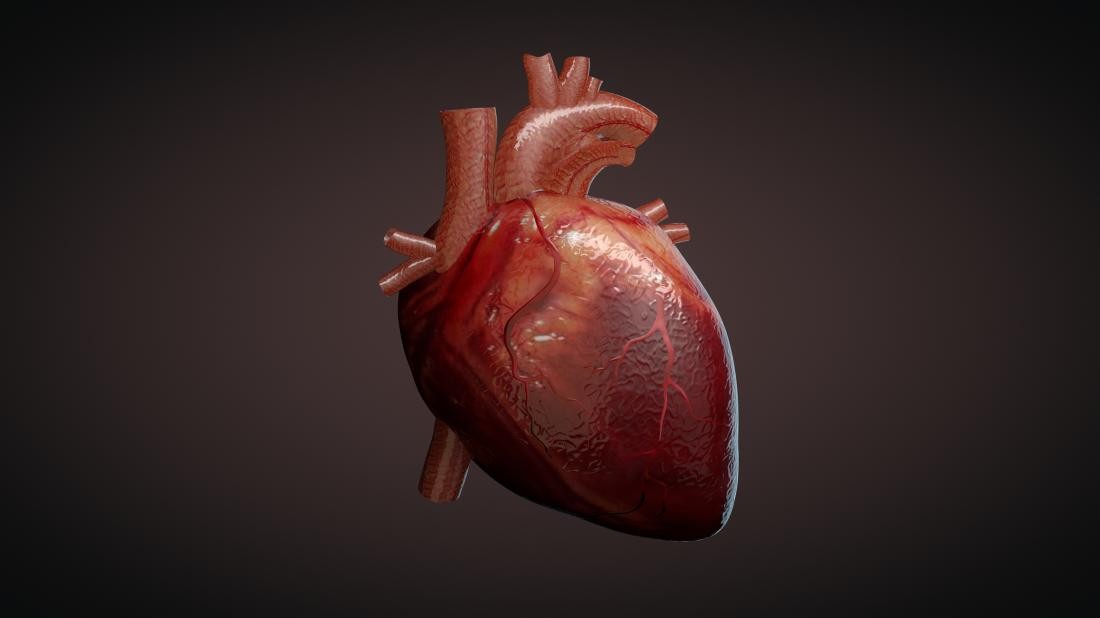
UC research focuses on key protein in heart failure
Study results will identify potential therapeutic targets
Research from the University of Cincinnati is examining a protein that plays a key role in heart failure.
The study is funded by the National Heart, Lung, and Blood Institute for just over $2 million dollars for four years and is a second renewal of a previous grant given to Sakthivel Sadayappan, PhD, professor in the Division of Cardiovascular Health and Disease in the Department of Internal Medicine at the UC College of Medicine.
Heart disease is a complex clinical syndrome that is a predominant cause of mortality in adults, says Sadayappan. With all the technology and treatment options, heart disease is still the number one killer worldwide and the leading cause of death for men and women in the U.S.

Sakthivel Sadayappan, PhD, professor in the Division of Cardiovascular Health and Disease in the Department of Internal Medicine at the UC College of Medicine/Photo/Colleen Kelley/UC Creative + Brand
The month of February has been designated as American Heart Month, which is dedicated to focusing on heart health. Over several decades, Sadayappan and his research lab have focused on understanding the exact causes, signals and defects that cause heart disease so that it can be either prevented or cured. In the current project, he and his team study the impact of the appearance of skeletal muscle protein in the heart during heart disease.
“In our preliminary study, we discovered that the protein is expressed or being used in the failing animal hearts and biopsies from heart failure patients,” says Sadayappan, the principal investigator for the study. “So, the question we asked was, ‘What is the skeletal muscle-specific protein expressed in the heart? What is its role in the heart? Is it helping the condition of heart failure or is it bad for treating heart failure?’”
The long-term objective of the research is to understand the functional consequences of the family of proteins on heart function in health and heart failure, according to Sadayappan. The research uses animal models to express the protein in the heart, which Sadayappan says is functionally beneficial, but not for the whole organ. Instead, that causes pain in the organ.
“This funding will determine why and how this phenomenon occurs,” says Sadayappan. “We don’t know that now. If it turns out that this process is beneficial, then we can use it as a gene therapy. We can use therapy on heart failure patients, and then see if we can improve their cardiac function. Or if it’s bad, we can use gene therapy to remove the protein in heart failure patients, and then that can be beneficial.”
Evangelia “Litsa” Kranias, PhD, Hanna Professor of Pharmacology and Systems Physiology, Distinguished University Research Professor, serves as a co-investigator in the study.
Next Lives Here
The University of Cincinnati is classified as a Research 1 institution by the Carnegie Commission and is ranked in the National Science Foundation's Top-35 public research universities. UC's medical, graduate and undergraduate students and faculty investigate problems and innovate solutions with real-world impact. Next Lives Here.
Related Stories
Achala Vagal, MD, appointed chair of Department of Radiology at...
July 11, 2025
The UC College of Medicine announces Achala Vagal, MD, as chair of radiology. A national leader in neuroradiology and stroke imaging, Vagal has 20-plus years of experience, advancing research, AI integration, mentorship and patient-centered innovation.
Understanding resistance to targeted therapies in head and neck,...
July 11, 2025
MSN highlighted University of Cincinnati Cancer Center and Cincinnati Veterans Affairs Medical Center research published in the journal Oncotarget that reviewed current research on why Epidermal Growth Factor Receptor-targeted therapies often fail in breast and head and neck cancers.
What parvovirus is and why it's on the rise
July 10, 2025
An infectious virus common in children is on the rise in the Tristate. The Cincinnati Health Department is warning of a rise in parvovirus in Hamilton County. The illness can present itself as a rash on the cheeks and is often called “slapped cheek” disease but can present more serious concerns in pregnant women. Kara Markham, MD, professor of obstetrics and gynecology at the University of Cincinnati College of Medicine recently appeared on Cincinnati Edition on WVXU to discuss how parvovirus is transmitted, the risk of serious cases and how to prevent it.
